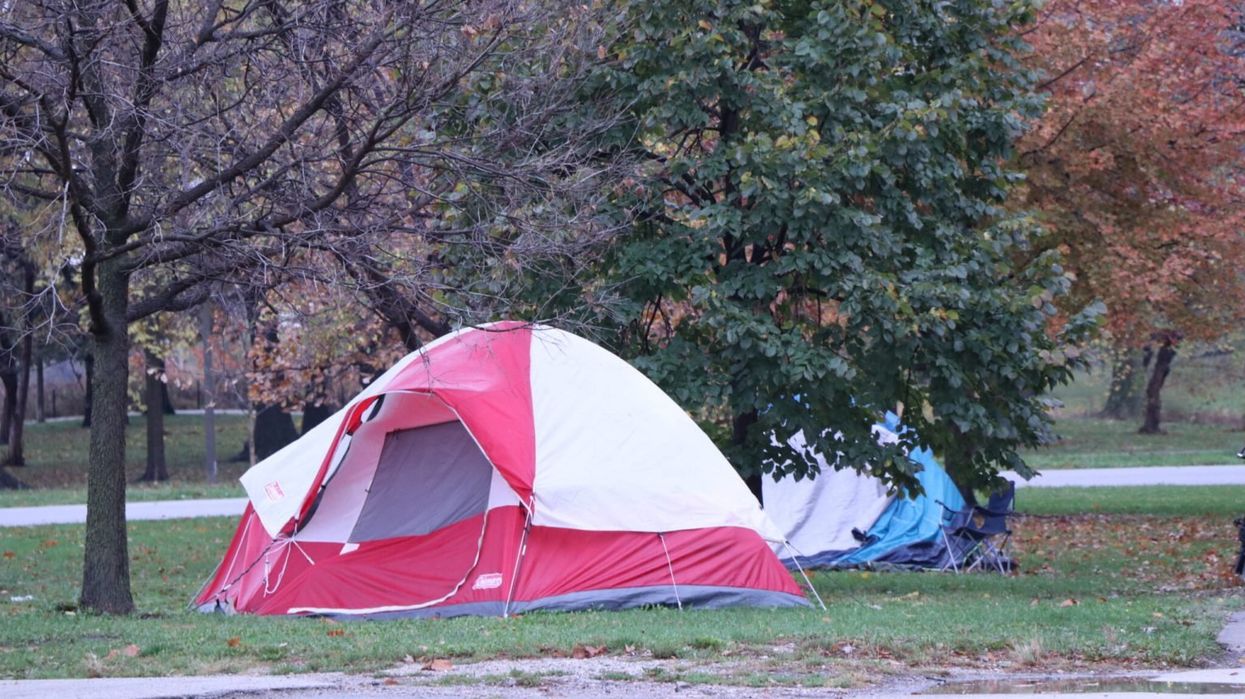Elected city officials and nonprofit organizations in Chicago have come together to create affordable housing for homeless, low-income and migrant residents in the city’s West Side.
So far, solutions include using tax increment financing and land trusts to help fund affordable housing.
The Housing Roundtable, organized this month by state Rep. Lilian Jiménez (D), gathered the Chicago Department of Housing, the Department of Family and Support Services, the Law Center for Better Housing, Cornerstone Community Outreach, Here to Stay Community Land Trust, Association Housing of Chicago and others. It was the second such convening of the year.
Their goal is to work with the West Side community to find various solutions for permanent, affordable housing. Jiménez, who sits on Gov. J.B. Pritzker’s (D) Interagency Task Force on Homelessness, hopes to host a roundtable before every legislative session to gauge what the community has done and needs. The first roundtable was focused on property tax relief. Jiménez said they are continuing to work with partners to make sure that property tax relief becomes a reality.
“We’re trying to create spaces for people to know where to come to help us, to introduce ideas, vet ideas, and to let the community know what we’re working on,” she said.
According to the Point in Time count, the migrant crisis has increased the number of people experiencing homelessness in Chicago. With 13,891 new individuals experiencing homelessness since 2023, the total comes to 18,836 individuals. According to Housing Action Illinois, there is a shortage of 289,419 affordable homes. In Chicago, the shortage of affordable rental homes stands at 126,125.
Pritzker’s fiscal 2024 budget dedicates $360 million to ending homelessness and improving housing solutions. Jiménez directs funds to impactful projects in her district.
The idea of a community land trust is, for Jiménez, one of the best solutions, using state grants to buy properties.
Lucy Gomez, community engagement specialist for Here to Stay Community Land Trust, said many of the roundtable participants “advocated for a $5 million grant from the state for Here to Stay last year, and we’re happy to report that we spent it!”
With the grant, they acquired 12 properties, mostly for families. According to Gomez, this is the only active community land trust in Chicago. Four homes have been sold since 2022, but many properties have been acquired and are in the rehabilitation process.
Here to Stay owns the land in trust. First-time buyers can purchase the home built on it. The buyers then lease the land from Here to Stay, meaning they only pay for the structure and not the land itself. This arrangement significantly reduces housing costs. Low-income families who have lived in these neighborhoods their whole lives can now stay and be protected from the rapid gentrification.
“We have to think of creative ways to basically outwit the market because these market forces are very exploitative and extractive,” says Jiménez.
Through the state’s and the city’s continued efforts, Alderperson Jessie Fuentes is applying public funding to purchase the New Life Covenant church building in Humboldt Park and turn it into a non-congregate shelter. Jiménez is trying to acquire $500,000 in state funds for this project. On top of means obtained through Chicago’s non-congregate shelter acquisition program and Tax Increment Financing, Fuentes will be able to provide 50 to 60 new rooms.
Beneficiaries will have private space and access to many services, including on-site case workers, meals, gyms, professional development workshops and other resources.
“The model has been proven to support individuals’ well-being but also improve transition to long-term housing,” says Meredith Muir, program manager of the Chicago Recovery Plan at the Department of Housing.
The Chicago Recovery Plan aims to help implement additional non-congregate shelters and has awarded grants to organizations that want to make that effort.
Cornerstone Community Outreach is a nonprofit organization working to find permanent housing solutions for people experiencing homelessness. Through the Chicago Recovery Plan, it will receive $4 million to rehabilitate a facility that will accommodate 40 men in need of affordable housing.
“This is a very courageous project with the Department of Housing, DFSS, Public Health, the 26th ward, the state of Illinois,” said Andrew Winter, executive director of CCO. “Cornerstone is forwarding this new model of housing in this neighborhood, and I am grateful to be a part of that.”
Although there is still significant progress to make, the momentum for affordable housing is
strong. “The governor has shown a commitment to ending homelessness, to addressing the
housing shortage in the last budget,” said Jiménez, “I hope that the governor will continue on
that path and make some announcements on how we can invest in more infrastructure.”
Huot-Marchand is a graduate student at Northwestern University’s Medill School of Journalism.




















Marco Rubio is the only adult left in the room